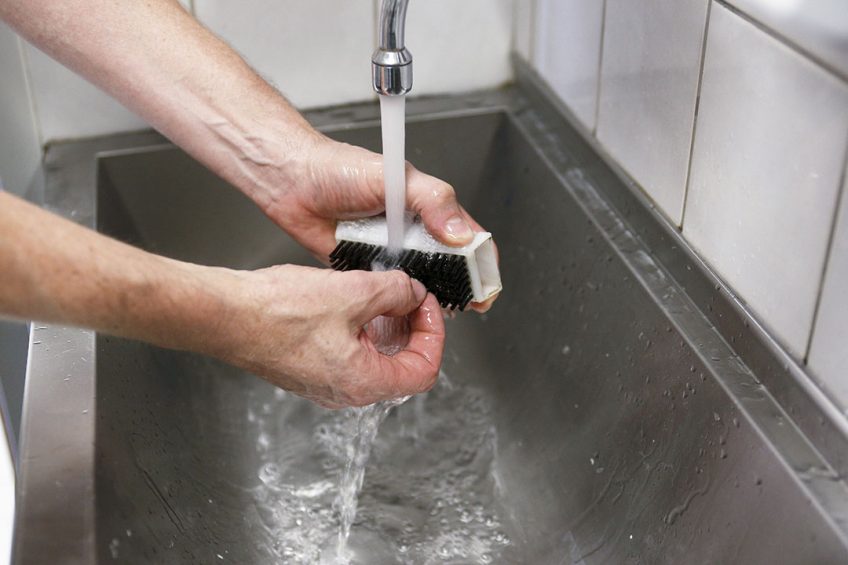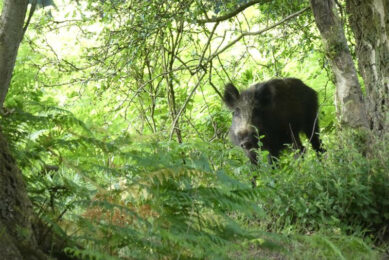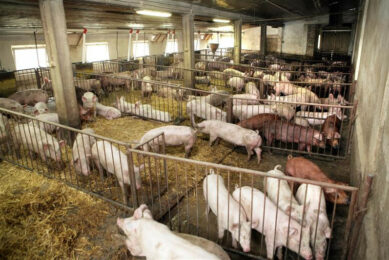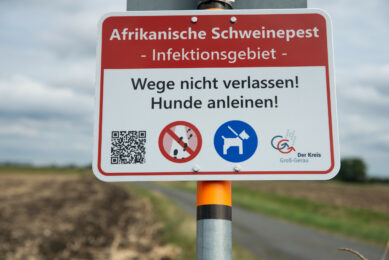5 Parallels between ASF and Covid-19

What used to be a concern of pig producers is now a concern of the whole human population: the fight against viruses. It would not be fair to generalise all viruses or to compare the situation surrounding Covid-19 with, for example, African Swine Fever (ASF). Yet pig welfare and production expert Dr Irene Camerlink found 5 parallels.
Intensive pig husbandry has always been known for its high infection pressure due to the high stocking density and pigs’ susceptibility to diseases. Couple that with stress from management procedures and the immune system will be severely challenged. For this reason, biosecurity measures have been well developed for farmers to implement.
Pig industry has long-standing experience
Now how does this relate to the Covid-19 pandemic? Replace the word ‘pig’ by ‘human’ and ‘farmer’ by ‘government’ and there are quite some lessons to learn in both directions. The pig industry has a long-standing experience in the fight against diseases, but can still learn from the measures taken during the ASF outbreaks and Covid-19 pandemic, whereas medics can learn from the practices on farms.

Biosecurity
One of the most important basics of keeping pigs healthy is a good farm biosecurity. Clean and ‘dirty’ areas are strictly separated. When this is well implemented and adhered to, healthy pigs stay healthy whereas potential viruses or ill pigs can only affect a small area of the farm. The biosecurity in Specific Pathogen Free (SPF) and some modern pig farms, including showering and changing clothes between units, often exceeds hospital standards. The well thought-through biosecurity planning of pig farms is something that other sectors can learn from.
 Distancing
Distancing
High stocking density means faster spread of viruses. Whether allowing pigs more space (1.5m?) would help much is to be questioned. Like humans, they are social beings and will anyway contact each other. More space for pigs would be a very good initiative for health and welfare, but if the focus is on fighting viruses than it may be more secure to invest in biosecurity.
 Quarantine and social isolation
Quarantine and social isolation
When having new pigs arriving at the farm quarantine is necessary to avoid diseases entering the farm. For the pigs in quarantine, as well as pigs in a hospital pen, it is important that they are kept together with at least 2. Social isolation is a very bad experience for pigs and will result in stress and reduced immunity. The negative impact of social isolation should be considered better in both pigs and humans.
 Hygiene
Hygiene
Pig farms are not the cleanest of all places, but the strongly emphasised importance of washing hands to reduce the spread of Covid-19 also applies to diseases in pigs. Strict hygiene between animals and groups (especially litters of piglets) is essential in reducing disease transmission.

 Consistency in applying measures
Consistency in applying measures
It only takes one exposure to get infected with Covid-19, and the one-time family gathering can undo all good efforts of keeping to the Covid rules. Similarly, biosecurity in pig holdings needs to be maintained consistently, even if it is annoying or easy to forget about. One minor inconsistency can have major consequences.

Pig Progress experts talk
To read more Pig Progress expert opinions
The Covid-19 pandemic and ASF outbreaks are a reminder of how fragile sectors are, and how important it is to maintain caution when being responsible for the health of others around you including pigs.











